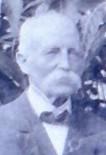1754 - 1829 Person Name: Rev. William Hurn Author of "Angels rejoiced and sweetly sung" in International Song Service Hurn, William, born at Breccles Hall, Norfolk, Dec. 21, 1754. His education was superior, enabling him, in 1777 to take the post of classical tutor in the Free Grammar School, Dedham, Essex. In 1779 he entered the army, but resigning his commission in 1780, he was ordained by Bishop Young of Norwich, in 1781. After holding various curacies, including Beighton Broome, Stowmarket, &c, he was presented in 1790 to the Vicarage of Debenham, Suffolk. In October, 1822, he resigned his Vicarage, and in April, 1823, undertook the pastorate of the Congregational chapel at Woodbridge, in the same county. This he retained to his death, Oct. 9, 1829. His poetical works included:—
(1) Health Hill, a descriptive poem, 1777; (2) Blessings of Peace, a Lyric Poem, 1784; (3) Laughter in Death, appended to Preparation for Death (a Sermon), 1792; and (4) Psalms & Hymns, the greater part original; and the selected compositions altered with a view to purity of Doctrine and General Usefulness. By W. Hurn, Vicar of Debenham. Ipswich, J. Raw, 1813. This contained 417 hymns, and a doxology. Of these 264 were by Hurn. After seceding from the Church of England this collection was enlarged and published as Hymns and Spiritual Songs, with Metrical Versions from the Psalms: designed to teach the Christian Doctrine according to the Analogy of Scripture, by combining Knowledge and Practice, or the Duties with the Principles of the Gospel. Woodbridge, 1824. This contained 420 of his hymns.
From the first edition of Hurn's collection the following hymns are in common use:—
1. Angels rejoiced and sweetly sung. Christmas.
2. Rise, gracious God, and shine. Missions. Altered in the Salisbury Hymn Book, 1857, to "Arise, O Lord, aud shine."
3. The God of truth His Church has blest. God's love of the Church.
A biographical notice of Hurn was given in the Evangelical Magazine, 1829, and his Brief Memorials were published in 1831.
--John Julian, Dictionary of Hymnology (1907)
William Hurn

